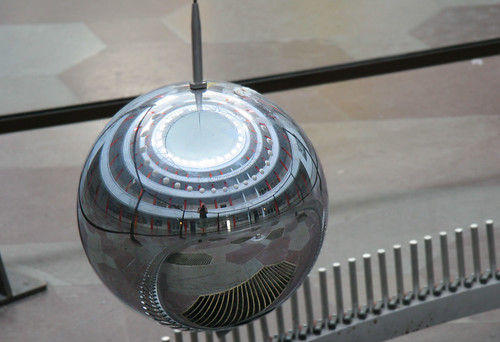
I'm concerned about so many of my Christian brothers and sisters buying into neo-conservativism, hook, line & sinker. After all... I used to. I can't call myself Republican or Democrat.
I agree with conservatives when it comes to ethics and morality, however because we don't live in a theocracy, I agree with liberals that the morals associated with traditional religion should not necessarily be legislated.
Jesus told His disciples to go out into the world and make other disciples, not go into the world, take over Governments, change their laws and force people to live out a Christian ethic. God looks on the inside of the heart, not on the outside. Even if the law could prohibit a person from sinning, that wouldn't make a person a Christian.
Christianity teaches that man has a sin nature. So I'm naturally suspicious of Government because power corrupts and absolute power corrupts absolutely.
But my faith also tells me that the LOVE of money is the root of all evil. So I am equally suspicious of corporate interests. Corporations are buying politicians. You can see why this might happen when you consider how expensive it is to run for higher office. Unless you're an independent millionaire, how can an aspiring public servant ascend? They have to sell themselves.
I believe in helping the poor, but I reject enabling the sluggard.
So am I a conservative? Or am I a liberal?
G.K. Chesterton once noted, upon reading criticisms of Christianity written by different skeptics that one skeptic would say Christianity was too feminized, while another would claim it to be too aggressive. One critic would claim it was too pacifist, while the other would claim it was the root cause of violence. He'd read one critic who would say that it liberated women too much and another that claimed it restricted them too much.
As a skeptic himself, he concluded that whatever this Christianity might be, it is a peculiar thing since it garners such criticisms from both extremes.
And then Chesterton came upon a startling epiphany:
And then in a quiet hour a strange thought struck me like a still thunderbolt. There had suddenly
come into my mind another explanation. Suppose we heard an unknown man spoken of by many
men. Suppose we were puzzled to hear that some men said he was too tall and some too short; some
objected to his fatness, some lamented his leanness; some thought him too dark, and some too fair.
One explanation (as has been already admitted) would be that he might be an odd shape. But there
is another explanation. He might be the right shape. Outrageously tall men might feel him to be
short. Very short men might feel him to be tall. Old bucks who are growing stout might consider
him insufficiently filled out; old beaux who were growing thin might feel that he expanded beyond
the narrow lines of elegance. Perhaps Swedes (who have pale hair like tow) called him a dark man,
while negroes considered him distinctly blonde. Perhaps (in short) this extraordinary thing is really
the ordinary thing; at least the normal thing, the centre. Perhaps, after all, it is Christianity that is
sane and all its critics that are mad—in various ways. - Orthodoxy pg 51.
The pendulum continues to swing because the truth is in the middle, pulling it down and into motion...
No comments:
Post a Comment